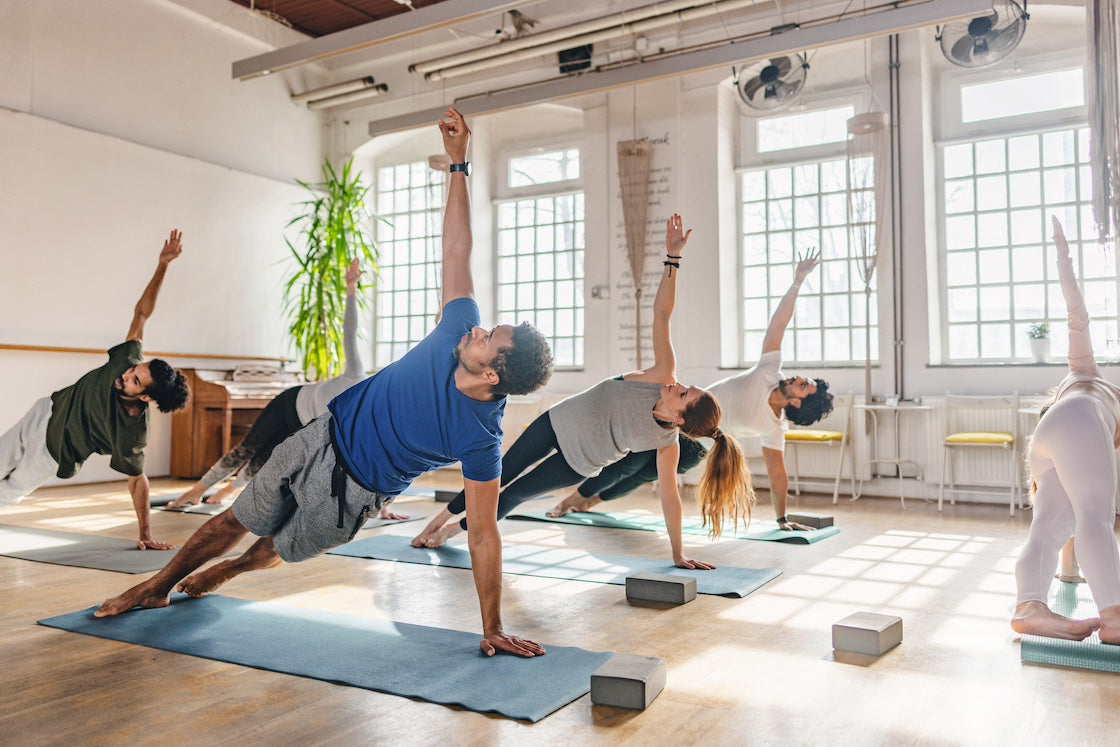Mental Health Awareness Week: Could movement help improve our mental health?
Exercise is physically challenging, and that’s one of the main points of it – to physically challenge our bodies in order to push ourselves and meet our goals. But for many, it’s also mentally challenging. Finding the energy, time, confidence and mental capacity to join a gym, go for a run or download a fitness app is a very real emotional struggle.
It’s a well-documented fact that exercise and movement are good for our mental health, but if we can’t find the mental wherewithal to exercise, and we’re struggling with our mental health, we’re caught in a negative cycle.
Exercise and mental wellbeing
Mental Health Awareness Week 2024 takes place from 13th to 19th May and this year, the theme is “Movement: Moving more for our mental health”.
The week is organised by the Mental Health Foundation, who say, “one of the most important things we can do to help protect our mental health is regular movement. Our bodies and our minds are connected. Looking after ourselves physically also helps us prevent problems with our mental health”.
Tips for adding movement to your day
We thought we’d take a look at some ways that might help you add a little more movement to your day if you’re finding it difficult to find the motivation to exercise and you’re feeling emotionally low…
- Walk and talk at work – need to speak to a colleague? Why not take a walk to see them face to face, rather than picking up the phone or sending an email? You could even take a walk together around the office, building or car park as you catch up.
- Get off a stop or two earlier – if you take the bus, tube or train to work, make a deal with yourself that you’ll walk a little further to and from the stop or station each day.
- Use the stairs – because who wants to make idle chit chat in the lift anyway?
- Go for a lunchtime walk – it’s all too easy to eat ‘al desko’ so make a point of leaving your desk or workplace or parking up at lunchtime and taking a walk around your local neighbourhood. Find a podcast that you’re interested in, to keep you company.
- Workout at home – there are thousands of online fitness apps (many of them free) that offer all kinds of workouts. We love the Active Nation and Yoga Studio apps for a wide range of easy to follow workouts that can be completed at home. Exercising at home can give you the confidence to work through new exercise regimes, without anyone seeing…
- Add fun to exercise – making up games with the kids that involve exploring local parks and green spaces can make exercise feel like, well, just a bit of fun!
- Make the most of “waiting times” – brushing our teeth, waiting for the kettle to boil, food prep, washing up, even during TV ads; it’s all time that we could use to add some movement. Marching on the spot, doing some squats or star jumps or even picking up some light weights/tins of food/bottles of water and doing some bicep curls – it all adds up!
New to exercise?
Starting any new form of exercise or movement can feel daunting. Start slowly, and set yourself small, achievable goals. The best exercise for you is the one you enjoy the most, and experimenting with different forms of movement can help you discover what you enjoy.
The benefits of exercise for mental health
When we exercise, we release feel-good hormones called endorphins that help to lift our mood and brighten our thoughts. Starting small helps us build confidence and potentially a newfound love for fitness. So, when you’re brushing your teeth tonight are you going to stare into the mirror? Or are you going to practice your best squats? We challenge you to at least ten!
Seeking mental health support
Exercise is great for our mental health. But it isn’t the only answer. If you’re struggling with your mental health (which can include symptoms of depression, anxiety, stress, disordered eating and many more) there are places you can turn to for help, including your GP, Mind and the Samaritans. Talking to loved ones can be difficult to begin with, but it can be beneficial to open up and share how you’re feeling.






